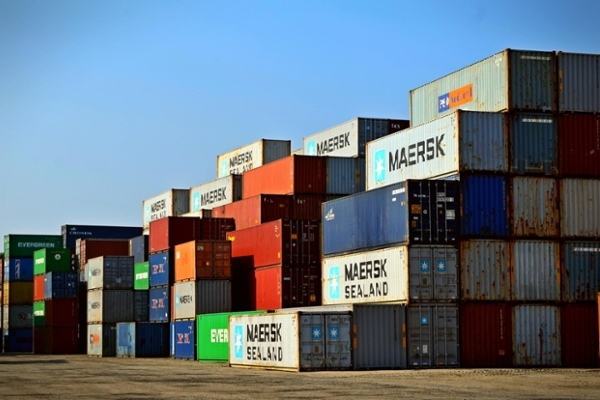
Should Canada Engage in a Tariff War with the US?
The threat of tariffs has dominated minds across Canada since the US government proposed them more than two months ago. They are causing a distressing and, perhaps, unnecessary concern among Canadians, mostly about the chaos that the uncertainty is creating.
By Jim Marshall, former senior economist, Government of Saskatchewan, Executive-in-Residence, Johnson Shoyama Graduate School of Public Policy (JSGS)Editor's Note: This is the second in the occasional publication of Opinion Briefs that will be a subset of the JSGS monthly Policy Brief series.
Download the JSGS Opinion Brief
There are some who question why Canada would respond to the tariffs imposed by the US. They ask what happens if Canada doesn't respond with reciprocal tariffs? If tariffs are bad for the economy, why not refuse to participate in the trade war? The emotion of wanting to fight back is understandable, but wouldn’t we be better off economically if we just shrugged and went on with our economic lives? Those are legitimate questions. The core issue becomes who bears the economic burden of higher prices resulting from tariffs, which are indirect taxes?
There are two levels of incidence of indirect taxes, taxes on goods and services as opposed to taxes on individuals. There is an initial (or administrative) incidence and a final (or economic) incidence. The former refers to "on whom the tax is levied in the first instance" or "from whom the tax is collected". The latter refers to "who ultimately bears the tax" or "on whom the burden falls". Tariffs are borne initially by those who import the goods, so the initial incidence is on the importer.
But the final incidence is not so clear. Companies cannot "bear" taxes. They must "shift" them, either forward onto consumers of their products, or backward onto their shareholders, labour or their suppliers. So, tariffs must ultimately be borne by one of those groups. Unfortunately, economists do not have much information on tax shifting so, for simplicity, most models assume they will be shifted forward onto consumers or shifted backward onto suppliers, that is exporters in other countries. The real answer is not likely that simple and will vary, depending on the nature of the goods taxed and any number of circumstances.
For some goods, there will be no readily available alternatives. If the US charges tariffs on Canadian oil, for example, the US may not be able to replace the 20% to 30% of its consumption that it gets from Canada and the consumers will have little choice, in the short run, but to buy the Canadian oil and pay the tariffs. Payments to shareholders of importers or refiners may also have to drop temporarily to absorb some of the tariffs. This can change over time but that could be for an extended period depending on existing contracts and existing trade routes. There are other places to get oil but one has to get the ships to the US and get the oil to refineries in Chicago or wait until those refineries wear out and are replaced by refineries in Louisiana. That could take a long time.
Taxing auto imports may lead to increased US domestic production, but one can't move a factory very easily and one doesn't shut down an existing factory in a foreign country until it is worn out because you have to pay for it even if you don't use it.
So, in these two examples, tariffs are likely to be borne by US consumers (and some companies), at least in the short run -- leading to higher prices and/or lower dividends in the US.
There may be other examples that go the other way. A Canadian tariff on Kentucky Bourbon, for example, might drive the less discerning to drink Canadian Rye or Canadian made "Bourbon-style" whisky. In this case, the "burden" of the tariff would be shifted backward onto the producers in the form of lower wholesale prices and/or onto their shareholders and labour in the form of lower production levels.
It is also important to distinguish whether a tariff is of general application, applied to all imports from all places, or targeted, applied only on specific goods or goods from specific countries.
So, in general, if a tariff is applied to a necessary good and that tariff applies to all other countries supplying the good, the burden of the tax will fall mainly on US consumers since they will have no choice but to buy the good as there is no source that is not taxed. If, on the other hand, a tariff is applied to a luxury or discretionary good and only on those from a specified country, it may be possible for US consumers to forego consumption or source the good from elsewhere. In this case, the burden is likely to be borne by the workers and shareholders of the producers of the good in the targeted country in the form of lower sales, lower production, fewer workers and lower profits or lower share prices.
Most analysis assumes that US tariffs will be shifted backward onto Canadian producers in lower prices for their products and/or lower production levels with lost sales and, therefore, lower dividends or share prices for their shareholders and lower employment/wages for their workers. This seems to be the big fear for Canadians, but it is not necessarily a guarantee, especially since the US has chosen to levy tariffs on all countries and on many products.
Won’t Canadian Tariffs Just Hurt Canadians?
So, there is reason to believe that, in many cases, Canada levying countervailing taxes (i.e. tariffs) may raise costs for Canadians as a response to US policies which raise costs to Americans, as some have suggested.
If one were very careful one might put Canadian taxes on US Bourbon or wine (or similar products) such that Canadians still have access to substitutes, whereby the burden would be felt by US producers more than Canadian consumers, other than, perhaps, some drop in their standard of living -- if you love Kentucky Bourbon or California wine. So, it may not make sense to inflict pain on Canadians as a response to US tariffs, unless you are sure you can find tariff targets where the burden of taxation is definitely "shifted backwards" onto US producers -- a risky bet at best.
A lot of the impact on Canadians will depend on what the government does with the proceeds of tariffs, if there are any. If the revenue from tariffs is spent in Canada, it may offset any economic impact in the country from the levying of the tax in the first place, although the distribution of the benefits may not be the same as the distribution of the pain. While it might be best to avoid the pain in the first place by being very targeted in the goods subject to tariffs, it may be possible to ameliorate any impact there is by targeted spending.
So far, the Canadian approach has the hallmarks of a response that will be passed “backward” onto US producers because their tariff targets are specific goods from the US, as opposed to all goods from all countries. That is, the Canadian counter tariffs are less likely to be borne by Canadian consumers than the US tariffs are to be borne by US consumers.
What is the Real Goal of Tariffs?
Some have suggested that President Trump has settled on tariffs somewhat by accident based on the misguided view that commodity taxes are more efficient (in an economic sense) than income taxes.
Income taxes, it is argued, discourage work and "success" while commodity taxes discourage “consumption" or spending. This is largely a theoretical argument as there is very little evidence that work or effort are discouraged by income taxes, perhaps because they tend to have fairly low marginal tax rates, even at the high end. And, there is only some weak evidence that commodity taxes of general application discourage consumption (targeted ones, such as on tobacco, can be very effective). At any rate, Americans are adamantly opposed to "sales taxes" and, therefore, would not accept any form of federal sales tax.
It is possible, however, that they would not object to tariffs, especially if it is believed they are borne by producers in other countries and not by US consumers. Since tariffs are applied on import and not collected at point of sale, they are usually built into the final price and are not “visible” to consumers as a sales tax might be. Even if they are ultimately borne by consumers, it may be some time before they experience them -- when they buy a new car in two years -- and they may not notice the higher prices and/or not attribute them to Trump's actions in April of 2025.
The counter to the "pro-commodity-tax" argument is that such taxes are sometimes viewed as "inequitable" because they tend to be borne by the low-income citizens, who consume a higher proportion of their income as compared to the wealthier, who tend to save more.
Income taxes, on the other hand, are viewed as more equitable because they are borne more by those with a greater "ability to pay" taxes and less by those of low income. So, Americans' dislike of sales taxes may actually be based on an inherent appreciation for "equity" in taxation over "economic efficiency" in taxation -- that is, that government should be paid for by those who can pay more.
Or, it may simply be a faint memory of the Boston Tea Party which set off a revolution in a colony over British duties (tariffs) on imported tea.
Jim Marshall

In his 34 years with the Government of Saskatchewan, Jim Marshall served in senior positions as staff to Treasury Board in the Ministry of Finance and in senior positions in the Crown Investment Corporation and in the Ministry of Industry and Resources before joining the Johnson-Shoyama Graduate School of Public Policy as an Executive-in-Residence and lecturer in a number of courses in public administration and public policy. As an Executive-in-Residence, Jim conducted hundreds of workshops in public administration in Western Canada and participated in national training activities. Jim has a B.A and an M.A. in Economics.

